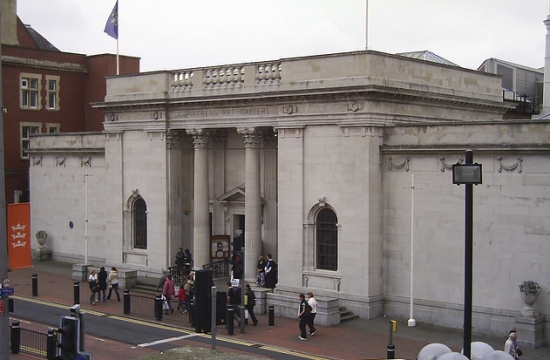This week it was announced that Hull is to be the UK’s City of Culture in 2017, having beaten rivals such as Dundee, Swansea Bay and Leicester to hold the coveted title. Yet while this accolade will no doubt play an important role in boosting interest in the city, it is hoped that 2017 will usher in a period of much-needed prosperity for Hull in terms of tourism and overall economic growth.

Ferens Art Gallery
When Liverpool became the European City of Culture back in 2008, investors became interested in the opportunities the title afforded them and thus put money into infrastructure, new development projects and general refurbishment works in key areas. Similarly, 2013’s UK City of Culture, Londonderry, has experienced a boom in investment that has seen wide scale improvements occurring in areas primed for urban regeneration.
Hull’s campaign was based around “a city coming out of the shadows”, indicating a desire for growth and improvement in the area as a whole. This desire could easily be met by investors keen to increase the commercial property offering in Hull, especially as the current consumer mood tends to favour new retail and leisure developments – projects currently being implemented in Oxford and Glasgow could have a similar positive effect upon the economic environment in the northern city.
Chair of the City of Culture panel, TV producer Phil Redmond, said the judges were “particularly impressed with Hull’s evidence of community and creative engagement, their links to the private sector and their focus on legacy, including a commitment to enhance funding beyond 2017.”
He continued; “[A city coming out of the shadows] is at the heart of their project and reminds both its people and the wider world of both its cultural past and future potential.”
Although the winner of the UK City of Culture does not receive any direct government funding, the knock on effects of the accolade do certainly seem to improve local economies. Tourism generally tends to climb greatly, allowing local businesses to showcase their offerings to a wider market and thus lift profit margins in preparation for expansion.
Of course, Hull already has venues which make it an attractive visitor destination. The Ferens Art Gallery, for example, played host to an exhibition of drawings by Leonardo Da Vinci last year which broke visitor records, while the £14.5 million home of the Hull Truck theatre company tends to prove immensely popular for lovers of the arts.
Leader of Hull City Council, Stephen Brady, believes that receiving the title will be “a real game-changer” for the city, giving it the spotlight required in order to attract investment and boost visitor numbers.
He says; “It will give Hull a platform to tell the world what this great city has to offer, transform perceptions and accelerate our journey to make Hull a prime visitor destination.”
Previous Post
New-Build Rate Relief Scheme Leaves Agents Unimpressed